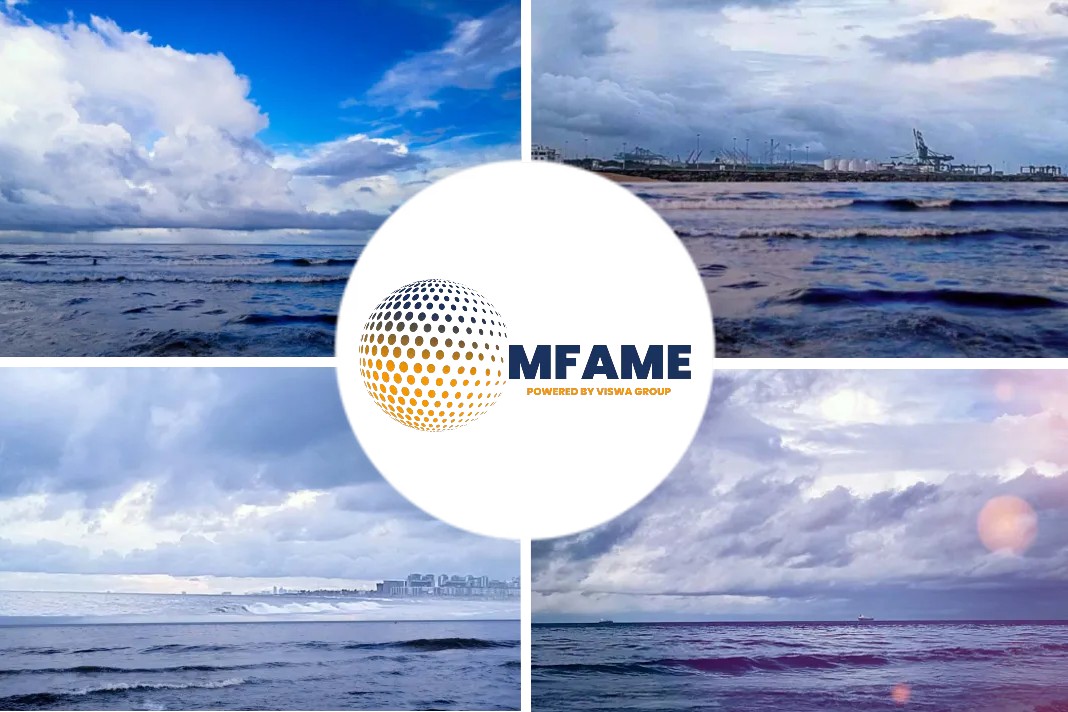- Marine Scrubbers have become the potential option in the post IMO 2020 world but their washwater are a concern.
- The washwater needs to be treated according to IMO 2015 regulations.
- The global market for marine scrubber systems is expected to witness significant growth during the forecast period, registering a CAGR of 20.4%.
- The wet marine segment will dominate with 90% share of the total absolute dollar opportunity of the scrubbers market by 2028
- By the end of 2028 global marine scrubber systems market will account for an absolute dollar opportunity of US$ 6.8 Billion
- Western Europe and the Asia Pacific accounts for 58% of the global absolute dollar opportunity.
- During the forecast period, the global marine scrubber systems market will create a market value of US$ 11.1 Bn in absolute dollar opportunity
According to an article published in Globe Newswire, marine scrubber systems are equipment installed in the exhaust systems of marine engines or boilers aboard ships.
The functionality of scrubber systems
They treat the exhaust gas emitted from the engine or boiler to remove the toxic sulphur dioxide gas content (SOx) as well as particulate matter (PM) based pollutants. Marine scrubber systems treat the exhaust stream of the engines with either seawater, fresh water that is chemically treated or dry materials such as hydrated granules (lime-treated), with the objective of cleansing the exhaust stream of the SOx and minimizing the PM that is ultimately released into the environment.
Pre-determined regulations for exhaust
After treatment in the scrubber system, the non-toxic exhaust that meets emission regulation norms is released into the open environment either at sea or later on land. Also, marine scrubber systems generate a waste stream, which is required to be treated using pre-set regulations, such as the 2015 IMO Guidelines.
The treated waste may then be discharged into the sea wherever permissible or may be stored and released to a land-based waste disposal facility. Attributing to the unique benefits of marine scrubber systems in reducing SOx emissions, the global market for marine scrubber systems is expected to witness significant growth during the forecast period, registering a CAGR of 20.4%.
Marine Scrubber Systems Market Report
Marine scrubber systems are being adopted by a large number of ship owners and operators to meet the existing as well as impending fuel sulphur content regulations of the International Maritime Organization (IMO). The sulphur cap has already been reduced to 0.1% across few designated in emission control areas (ECA) since 2015, while a global sulphur cap of 0.5% for all maritime transport is set to come into force on 1st January 2020.
The options before ship-owners are either to use low sulphur marine fuels or use technology such as marine scrubber systems to treat the toxic emissions from the high sulphur fuel oil they prefer to use. The wide price gap between the low-cost heavy sulphur fuel oil and the high-cost fuel oils with low sulphur content makes a good business case for the installation of marine scrubber systems for ship owners and operators.
Market domination of scrubbers
Based on technology, the wet marine scrubber systems segment is expected to continue to dominate the marine scrubber systems market in terms of global market share and is expected to account for more than a 90% share of the total absolute dollar opportunity in the marine scrubber systems market by the end of 2028. Among the wet marine scrubber systems segment, the open loop segment is expected to remain dominant throughout the forecast period, although the market for the hybrid segment is also projected to witness robust growth.
Surge in retrofit segments
Based on application, the retrofit segment is expected to lead the global marine scrubber systems market and account for an absolute $ opportunity of US$ 6.8 Billion by 2028 end. However, the demand for marine scrubber systems in new build applications is expected to grow at a faster pace during the forecast period. Retrofitting marine scrubber systems are a more costly affair as compared to installing marine scrubber systems in newly built vessels. However, the tight timelines ahead of the 2020 deadline have provided a boost to the retrofit segment.
Western Europe and the Asia Pacific lucrative markets
In 2018, Western Europe and the Asia Pacific are estimated to be the most lucrative regions in the global marine scrubber systems market and are likely to account for 58% of the global absolute $ opportunity. The North America market for marine scrubber systems is also projected to grow at a healthy rate, owing to the ECA rules already in force for North America Waters and Caribbean seas along with the impending 2020 regulation to stimulate market demand. South Korea and China continue to be strong markets for marine scrubber systems and robust growth is being witnessed in the South East Asia Pacific region.
Key players in the market
The marine scrubber systems market is highly competitive with the presence of many regional and international players, although currently the marine scrubber systems market is dominated by a handful of large global players. Wärtsilä Oyj Abp, Alfa Laval AB, Yara Marine Technologies AS, E. I. du Pont de Nemours and Company, Fuji Electric Co. Ltd., Valmet Corporation, Andritz AG, VDL AEC Maritime, Feen Marine Scrubbers Inc., CR Ocean Engineering, LLC, Mitsubishi Heavy Industries, Ltd., Hyundai Heavy Industries and Pacific Green Marine Technologies Inc. are some of the key players in the global marine scrubber systems market.
Long-Term Outlook for the Marine Scrubber Systems Market
In terms of market value, the global marine scrubber systems market is expected to create an absolute $ opportunity worth US$ 11.1 Bn during the forecast period. Western Europe, Asia Pacific, and North America are likely to witness high adoption of marine scrubber systems during the forecast period.
Did you subscribe to our daily newsletter?
It’s Free! Click here to Subscribe!
Source: GlobeNews
















